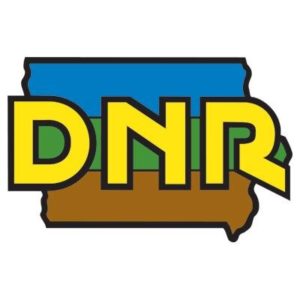 Last year, roughly 7,500 out of 1.6 million Iowa taxpayers helped boost wildlife conservation with donations to the Fish and Wildlife Fund on their state tax form. Despite a steady increase in the total number of returns since 2009, this amount has stayed roughly the same since 2010, with only small fluctuations.
Last year, roughly 7,500 out of 1.6 million Iowa taxpayers helped boost wildlife conservation with donations to the Fish and Wildlife Fund on their state tax form. Despite a steady increase in the total number of returns since 2009, this amount has stayed roughly the same since 2010, with only small fluctuations.
“We are so thankful that funding remained steady this tax season,” said Iowa DNR wildlife diversity biologist Stephanie Shepherd. “However, there is still plenty of opportunity to increase donation levels, which directly help some of Iowa’s most vulnerable animal species, so the funds are very important for natural resources.”
Proceeds from the check-off are one of the few means of support for the Department of Natural Resources’ Wildlife Diversity program, responsible for protecting more than 1,000 fish and wildlife species in the state. Money from the Check-off helps improve wildlife habit, restore native wildlife, provide opportunities for citizens to learn about our natural resources and much more.
According to Shepherd, Iowans donated roughly $132,000 last spring when completing their 2015 tax forms. This translates to an average gift of $17.50 per donor.
The Fish and Wildlife Fund, known popularly as the “Chickadee Check-off,” is a mechanism the Iowa Legislature created in the 1980s for Iowa citizens to donate to wildlife conservation on the Iowa state tax form. Before this time, so called non-game wildlife had no dedicated funding. At its height, Iowans donated more than $200,000 annually to the fund. According to Shepherd, the main reasons for the decline are unknown, but taxpayers do need to be alert when filling out their form or working with a tax preparer.
“It is an inconspicuous line that is easy to pass over or forget, and many tax preparers may not remember to ask whether a client wants to donate,” said Shepherd. “It may be up to the taxpayer to remind their preparer, or to make a point of looking for the donations section on either the paper or electronic form.”
According to Shepherd, donating on the tax form is easy: simply write the amount to donate next to the Fish and Wildlife Check-Off, line 57 on Form 1040, and the sum is either automatically deducted from the refund or added to the amount owed. As with all charitable contributions, the amount is deductible from next year’s taxes.
“Currently only about half a percent of Iowans donate,” said Shepherd. “If every Iowa taxpayer donated just a dollar, it would mean $1.5 million for wildlife and natural resource conservation. There is room to grow.”
